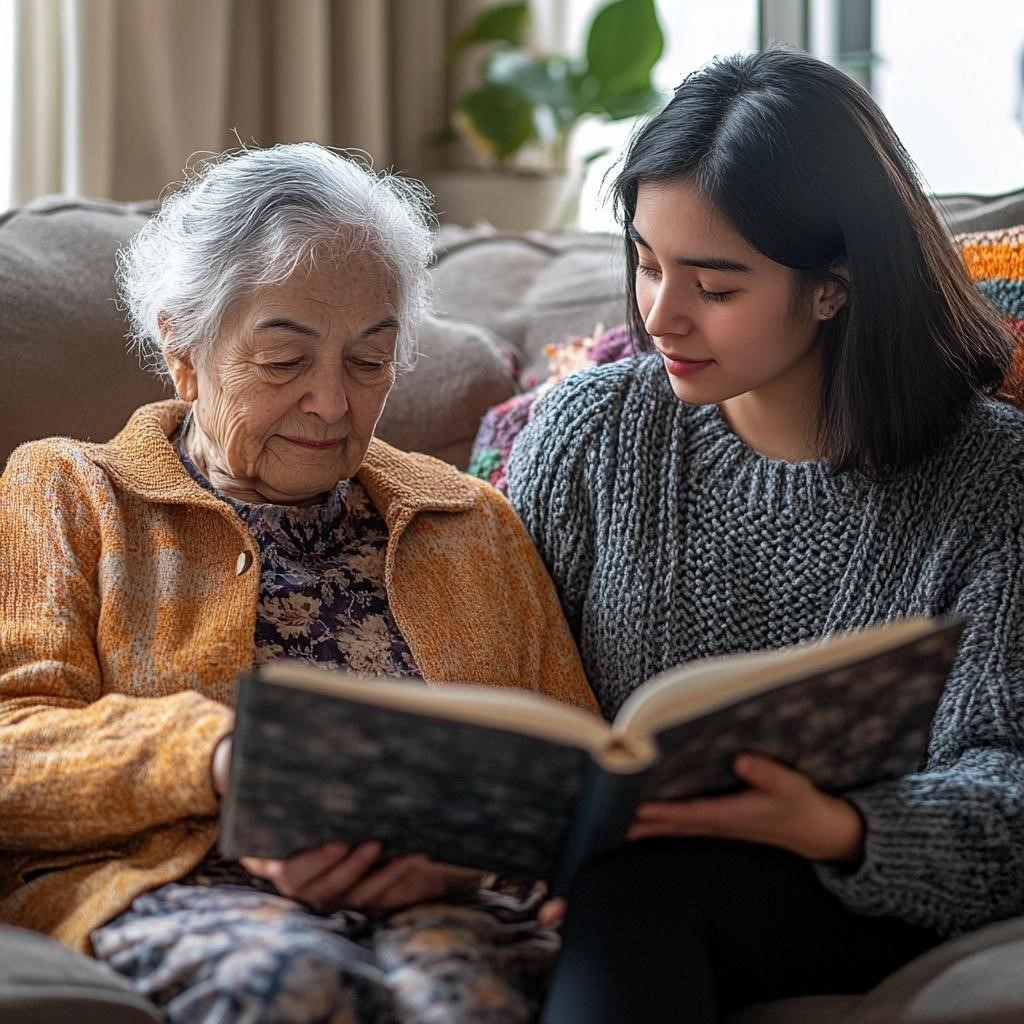
Watching a loved one age isn’t always easy, especially when you start noticing changes that weren’t there before. Maybe they’ve skipped a few meals, seem more forgetful, or just don’t have the same energy to get through the day. These small shifts can quietly build up, and it’s natural to wonder if it’s time for a little extra support.
Home care can be a thoughtful way to help them stay safe and comfortable without giving up the independence they value.
In this article, we’ll walk you through six clear signs that it might be time to explore senior care at home.
1. Noticeable Changes in Personal Hygiene and Appearance
One of the first things many families notice is a shift in how their loved one looks or maintains their personal care routine.
Difficulty with Bathing, Grooming, or Dressing
A clean appearance isn’t just about vanity—it’s a critical part of health and self-esteem. If your loved one struggles with tasks like bathing, grooming, or dressing, it’s often an early sign they need assistance. Sometimes, physical limitations such as arthritis or balance issues make these tasks difficult or unsafe.
Warning Signs to Watch For
- Wearing the same clothes repeatedly
- Noticeable body odor
- Unkempt hair or nails
Neglecting personal hygiene can lead to infections, skin issues, and emotional distress. According to the National Institute on Aging, hygiene challenges are one of the top reasons families seek in-home care.
2. Increased Forgetfulness and Missed Medications
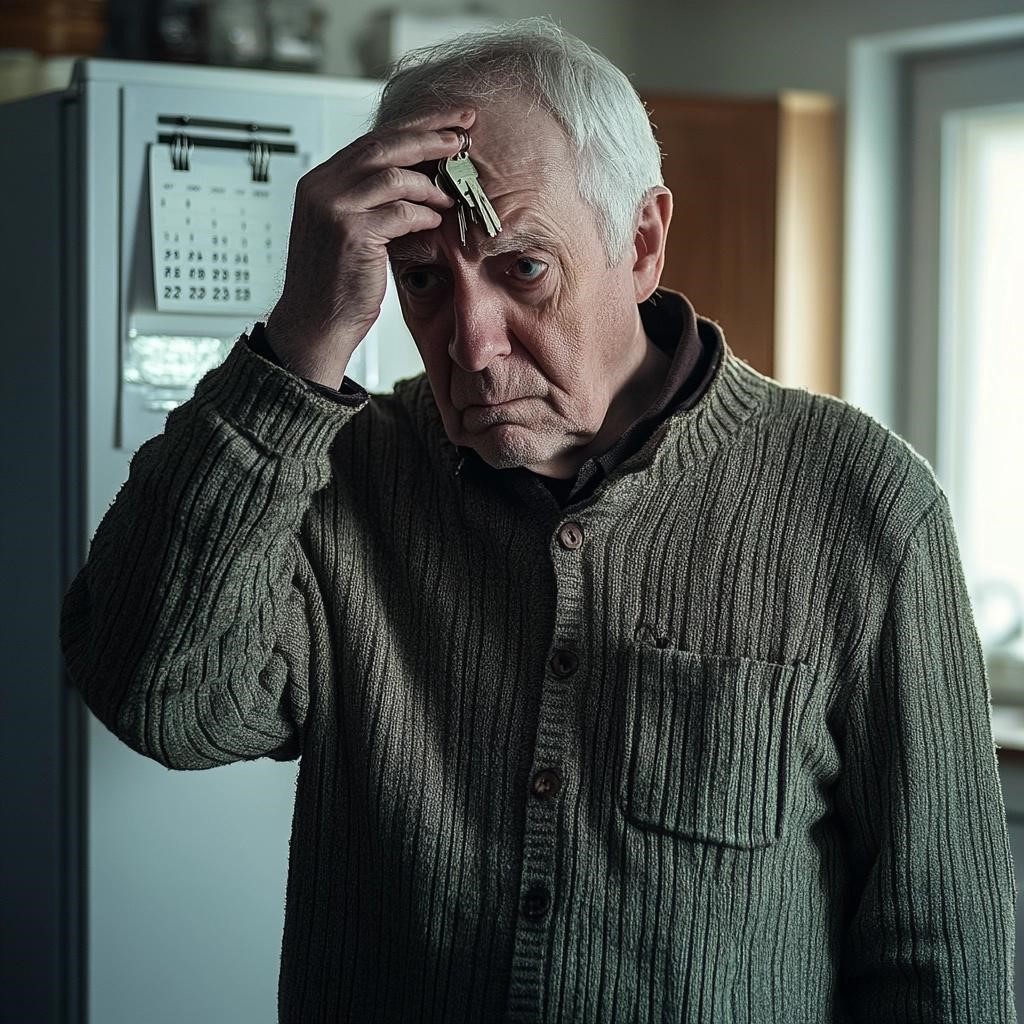
If you’ve noticed your loved one becoming more forgetful or missing important parts of their daily routine, it could be more than just “a senior moment.”
Missed Appointments, Meals, or Medications
Occasional forgetfulness is normal with aging, but consistent memory lapses (like missing doctor’s appointments or forgetting to eat) can indicate cognitive decline. More concerning is when seniors forget to take medications, which can lead to serious health complications.
Early Memory Decline vs. Normal Aging
| Normal Aging | Early Memory Decline (Concerning) |
| Occasionally forgetting names but remembering later | Frequently forgetting names and not recalling them later |
| Misplacing items occasionally but retracing steps | Misplacing items in unusual places and unable to retrace steps |
| Sometimes forgetting the day but remembering it later | Losing track of dates, time, or seasons regularly |
| Pausing to find the right word during conversation | Struggling to follow or join conversations |
| Needing reminders for appointments | Missing important appointments, meals, or medication regularly |
| Forgetting how to use new technology or tools | Forgetting how to perform familiar tasks, like cooking or grooming |
The Alzheimer’s Association highlights memory loss that disrupts daily life as an early sign of dementia.
Medication Reminders and Routine Support
Home care services help by setting up medication reminders and assisting with establishing predictable routines. This consistency not only prevents health emergencies but also eases anxiety for both seniors and their families.
3. Decline in Mobility and Increased Risk of Falls
When getting around the house starts to look more difficult (or even dangerous) it’s often a sign that mobility issues are setting in.
Mobility Struggles and Fall Risks
Difficulty standing, walking, or navigating the home safely is a serious concern. Seniors may experience weakness, balance issues, or fear of falling. Sometimes, even a minor trip can result in devastating injuries like hip fractures, leading to permanent loss of independence.
Common Warning Signs
- Unexplained bruises – Visible marks on the skin without a known cause may indicate recent falls or bumps they haven’t mentioned.
- Holding onto walls or furniture – Frequently using walls, furniture, or countertops for support suggests unsteadiness or balance issues.
- Reluctance to leave home – Avoiding outings or errands may signal a fear of falling or decreased confidence in mobility.
The Centers for Disease Control and Prevention (CDC) states that falls are the leading cause of injury among older adults.
Safe Transfer Assistance
At Live Life at Home, our trained caregivers offer transfer assistance, mobility support, and home safety assessments. We help minimize risks by creating safer environments and assisting with movement whenever necessary.
4. Changes in Eating Habits and Weight Fluctuations
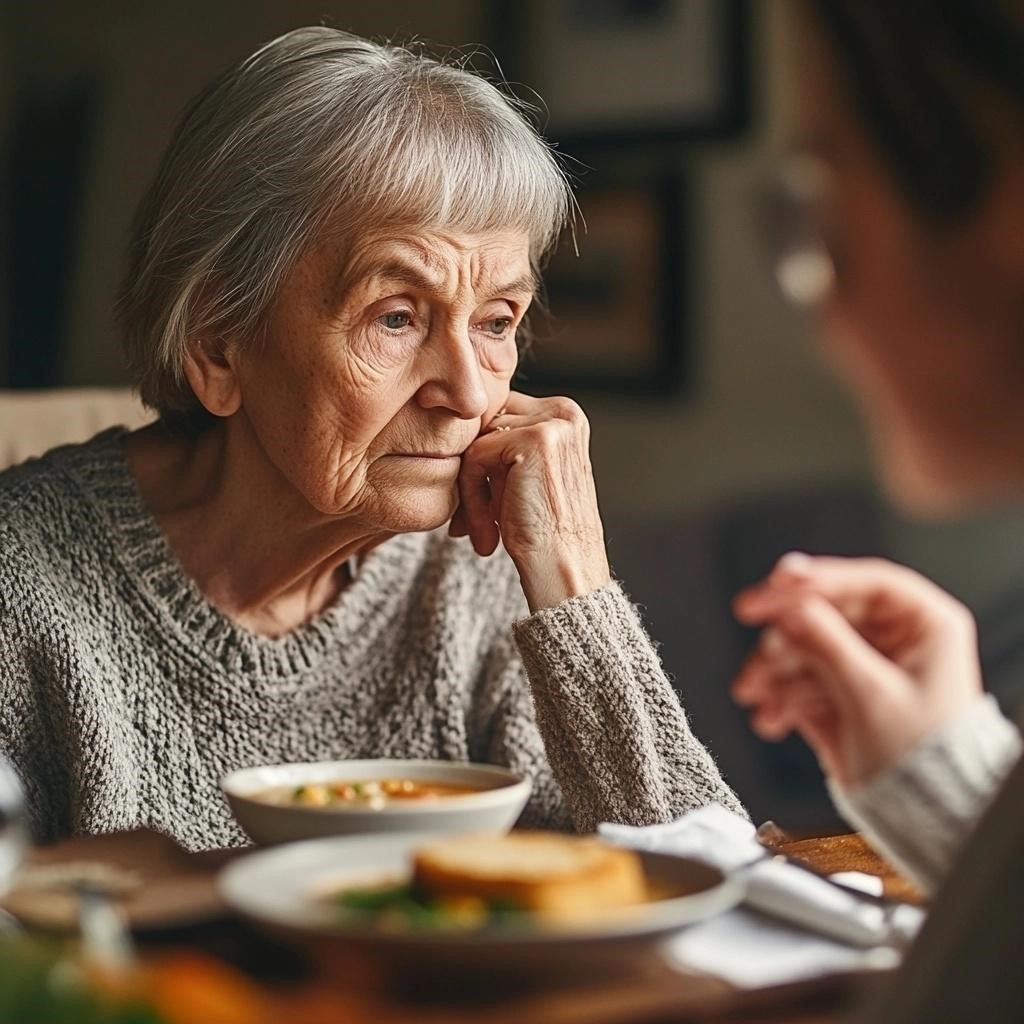
Changes in appetite or sudden shifts in weight are often easy to overlook, but they can signal deeper health or emotional issues that shouldn’t be ignored.
Poor Nutrition and Dehydration
Malnutrition can happen silently. If your loved one is losing or gaining weight rapidly, skipping meals, or showing signs of dehydration, it’s time to intervene. Challenges like poor dental health, medication side effects, or depression can all impact eating habits.
Key Warning Signs
- Expired or untouched food in the fridge – A fridge full of spoiled, uneaten, or expired food may indicate they’re forgetting to eat, losing interest in cooking, or no longer able to prepare meals safely.
- Noticeable weight loss or gain – Sudden weight changes can be signs of poor nutrition, underlying medical issues, or even emotional struggles like depression.
- Lack of interest in meals – Skipping meals or eating very little could stem from a reduced appetite, difficulty chewing or swallowing, or simply losing the motivation to cook or eat alone.
Poor nutrition weakens the immune system and increases the risk of hospitalization, according to the National Institute on Aging.
Meal Preparation Services Make a Difference
Caregivers ensure that seniors receive balanced, appealing meals tailored to their dietary needs. By helping with grocery shopping, meal prep, and hydration reminders, they help support long-term health and energy levels.
5. Social Isolation and Withdrawal from Activities
When a loved one starts spending more time alone and avoiding the people or activities they used to enjoy, it may be a sign of growing isolation or emotional distress that needs attention.
The Danger of Loneliness
Social isolation in seniors can increase the risk of cognitive decline, depression, heart disease, weakened immune function, and even premature death (National Academies of Sciences). Over time, a lack of meaningful connection takes a serious toll on both mental and physical health.
Signs of Social Withdrawal
- Avoiding favorite hobbies – Seniors may lose interest in activities they once enjoyed, such as gardening, reading, or attending social clubs.
- Reduced communication with friends or family – You might notice fewer phone calls, skipped family gatherings, or a general withdrawal from social interaction.
- Expressions of sadness or anxiety – Your loved one may express feelings of loneliness, worry, or seem more emotionally down than usual.
6. Caregiver Stress and Family Burnout
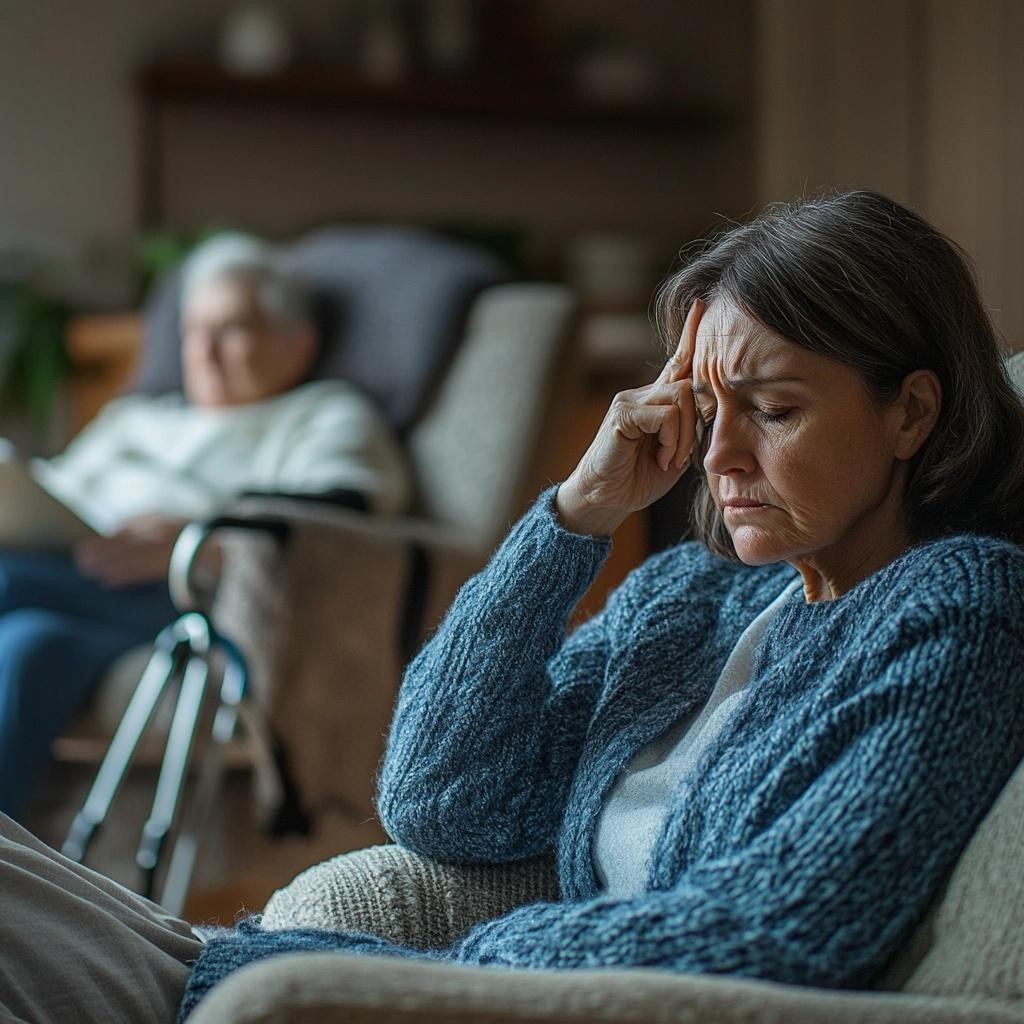
Caring for a loved one can be deeply rewarding, but when the responsibilities start to take a toll on your own well-being, it’s important to recognize when you need support, too.
Recognizing Caregiver Fatigue
When family caregivers try to do it all, burnout often follows. Physical exhaustion, emotional strain, and feelings of guilt or resentment are warning signs that caregivers themselves need help.
Common Symptoms of Burnout
- Chronic fatigue
- Mood swings
- Health problems (headaches, high blood pressure)
Family caregivers deserve support, too. Ignoring burnout can harm both the caregiver and the senior.
Respite Care as a Lifeline
Respite care provides temporary relief, giving family members a much-needed break while ensuring continuity of care. Our team at Live Life at Home steps in with trusted, compassionate support so you can recharge and return stronger.
Benefits of In-Home Care: More Than Just Assistance
When it becomes clear that extra help is needed, in-home care offers a balanced solution that keeps seniors safe while honoring their independence and daily routines.
Supporting Independence with Dignity
Home care services allow seniors to stay in a familiar, comfortable environment while receiving the appropriate level of support, ensuring their independence is maintained and protected.
Key Benefits of In-Home Care:
- Personalized attention – In-home care is tailored to meet each senior’s specific needs.
- Familiar routines – Seniors can stick to their daily habits in the comfort of their own home.
- Flexible schedules – Care plans can be adjusted to fit any routine or level of need.
- Enhanced quality of life – Support at home helps seniors stay comfortable, safe, and independent.
Why Choose Live Life at Home in Irvine, CA?
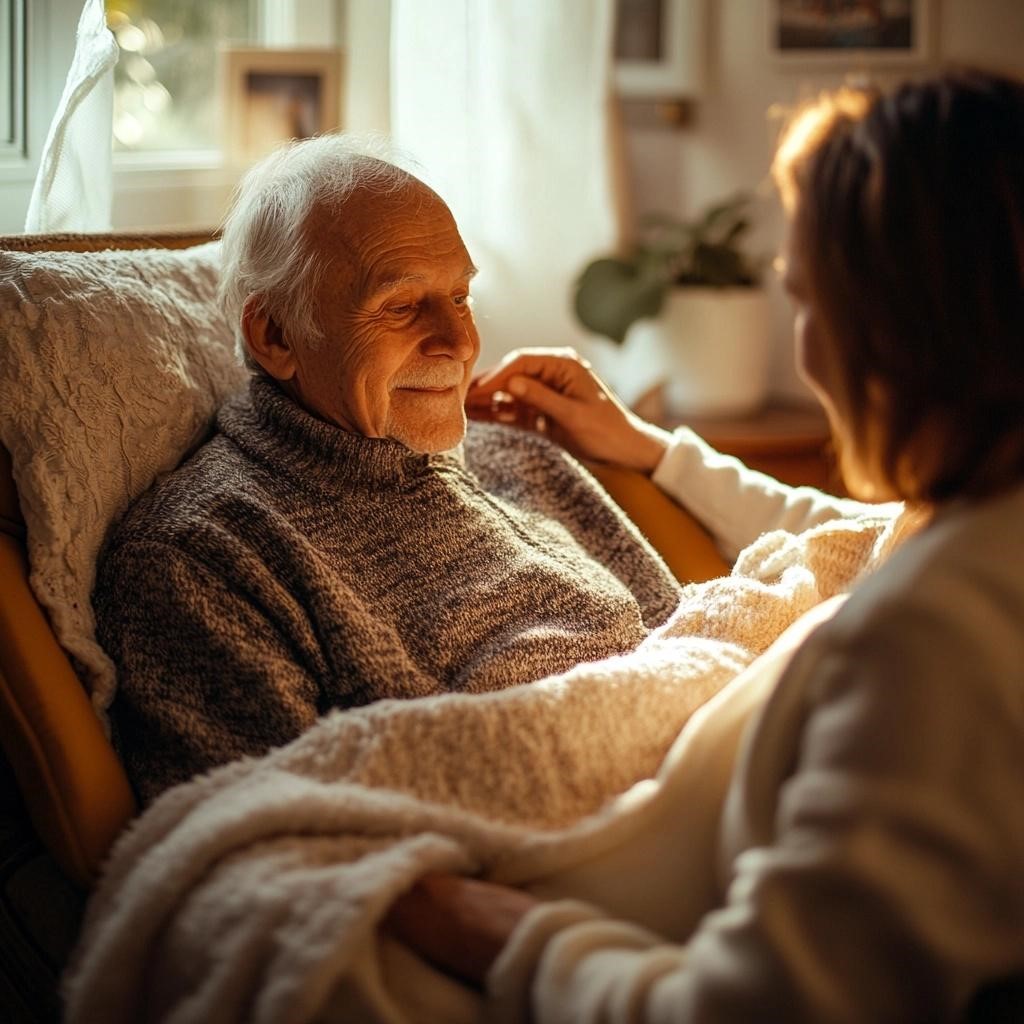
Each member of our team is selected for their expertise, compassion, and dedication. We invest in continuous training and skill-building to ensure the best possible care for your loved one.
Comprehensive Care Services
- Hourly care – Flexible support for daily tasks, ideal for seniors who need help a few hours a day.
- Live-in support – Around-the-clock assistance for those who require continuous care and supervision.
- Respite care – Temporary relief for family caregivers, giving them time to rest and recharge.
- Specialized services for complex needs – Care tailored for conditions like dementia, Parkinson’s, or post-surgery recovery.
Free Care Evaluations
We believe that every family deserves a personalized approach. That’s why we offer a free care evaluation to assess your loved one’s situation and recommend the best solutions.
FAQs About Elderly Care at Home
1. How do I know it’s the right time to hire in-home help?
If you notice struggles with daily activities, memory issues, increased isolation, or signs of caregiver burnout, it’s time to explore support options.
2. Can part-time elderly care make a difference?
Absolutely! Even a few hours a week of hourly care can greatly improve a senior’s safety, well-being, and mood.
3. What services are typically included in home care?
Typical services include personal care (like bathing and dressing), companionship, medication reminders, meal preparation, and light housekeeping.
4. Will my loved one lose independence with a caregiver?
No, proper home care services enhance independence by providing just enough support to allow seniors to live safely and confidently.
Conclusion: Recognizing the Right Time for Support
Trust your instincts. If you notice any of these signs, it’s time to seek help. Acting early can safeguard your loved one’s safety, health, and happiness. At Live Life at Home, we don’t just provide care, we create partnerships built on compassion, integrity, and trust. Let us walk this journey with you.
Ready to get started? Contact us today for your free care evaluation and take the first step toward a better quality of life for your family.
